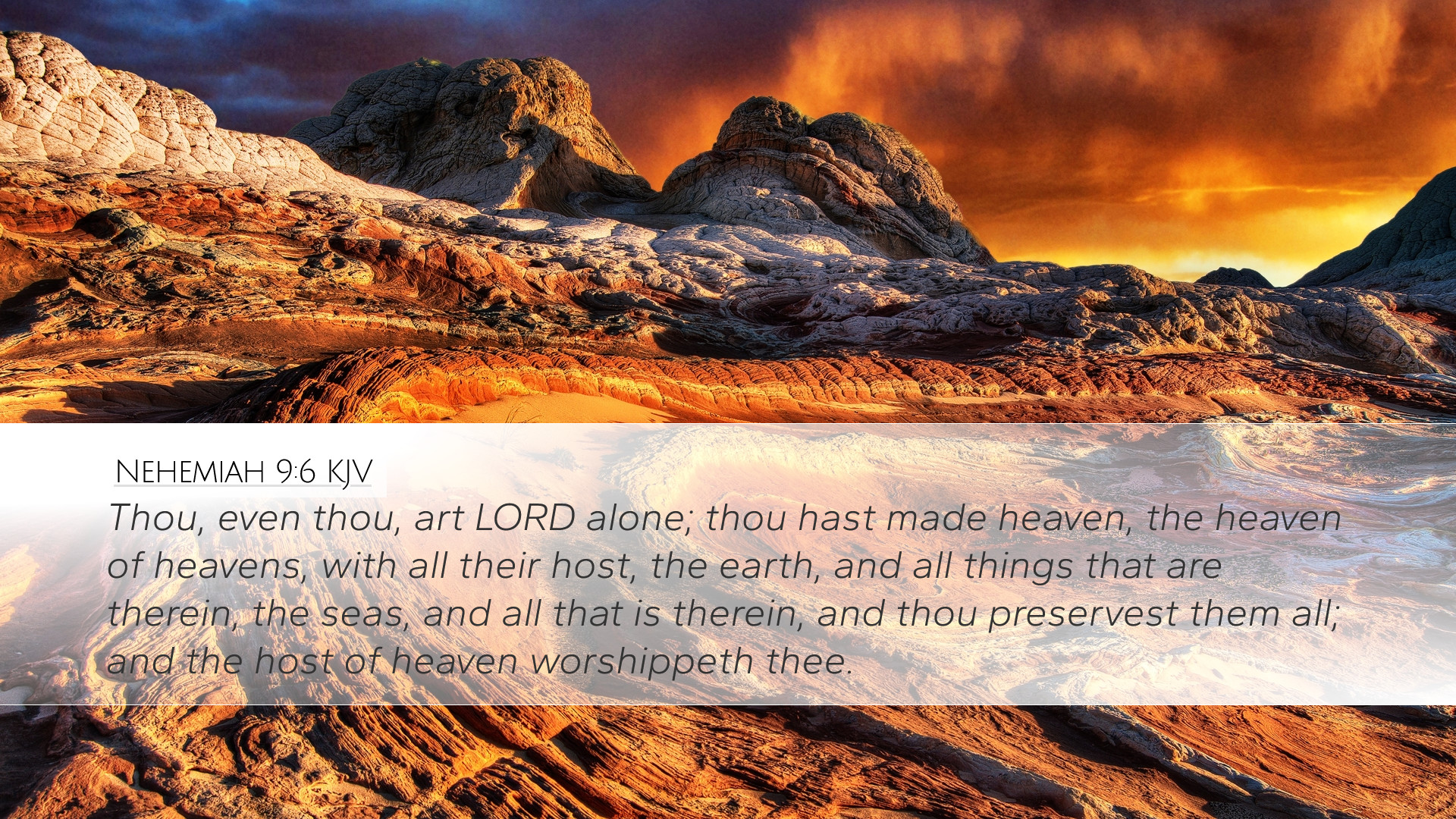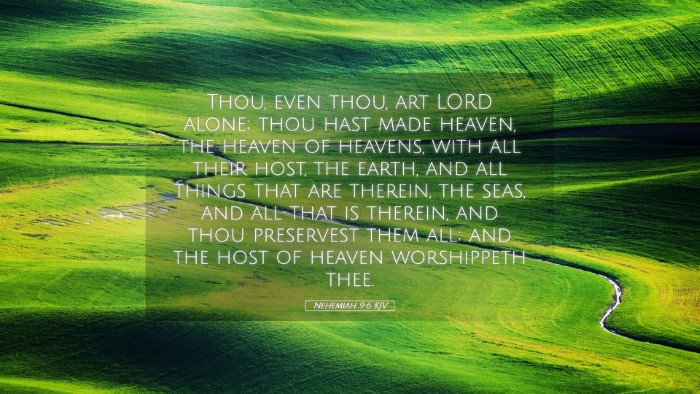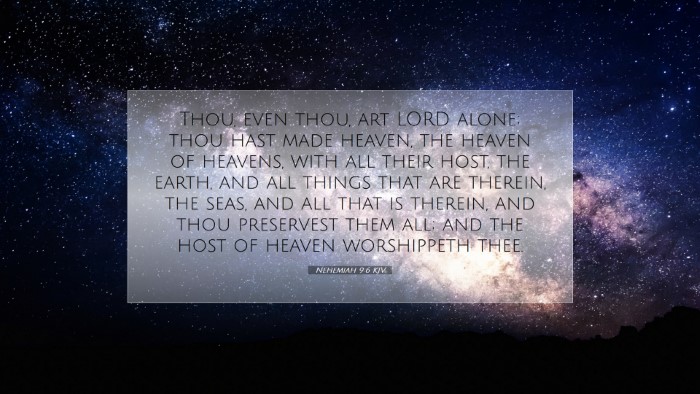Commentary on Nehemiah 9:6
Verse Context and Significance: Nehemiah 9:6 reads, "You alone are the LORD; You have made heaven, the heaven of heavens, with all their host, the earth and everything on it, the seas and all that is in them, and You preserve them all. The host of heaven worships You." This declaration is a profound acknowledgment of God's sovereignty, creative power, and sustaining presence in the universe.
Insights from Commentaries
Matthew Henry (1662-1714)
In his exhaustive study, Matthew Henry emphasizes that this verse articulates the foundational truth of monotheism. He notes that the prayer offered in this chapter recounts the history of Israel, pointing towards God's faithfulness amidst Israel's unfaithfulness. Henry highlights God's solitary divinity, stating that "You alone are the LORD" serves as a critique against the false gods that the Israelites encountered. He observes that the acknowledgment of God as Creator of "heaven, the heaven of heavens" and all within them is essential, as it underscores not just creation, but continuous sustenance. God's role as a preserver of all things is significant, linking His creation with ongoing providence.
Albert Barnes (1798-1870)
Albert Barnes provides a detailed exposition on the components of this verse. He points out that "the host of heaven" refers to both the sun, moon, and stars, as well as the spiritual beings that inhabit the celestial realms. Barnes explains that the term used for "heaven" can refer to various aspects of the cosmos and emphasizes God's comprehensive dominion over all created entities. He places particular importance on the phrase "You preserve them all," suggesting that God not only initiates creation but also actively maintains and governs all aspects of it. This verse serves as a doctrinal foundation for understanding God’s unceasing involvement in the world, challenging believers to recognize God's omnipotence in every circumstance of existence.
Adam Clarke (1760-1832)
Adam Clarke offers further depth by examining the implications of God’s creative prowess. He posits that the phrase "the earth and everything on it" includes all animate and inanimate creation, establishing a relationship where God is both transcendent and immanent. Clarke emphasizes that the act of creation itself is a testament to God’s incomparable power and lordship. Extending this further, he interprets the term "the host of heaven" as a call to recognize the worship of celestial beings as a model for human worship, urging the faithful to align their adoration with the heavenly realms. Clarke also reflects on God's sustaining power, arguing that it is vital for Christians to understand this aspect of God's character; without His preservation, creation itself would cease to exist.
Theological Reflections
The insights from these eminent commentators present a multi-faceted view of Nehemiah 9:6 that is essential for both pastoral application and theological inquiry. Here, we can draw several key theological implications:
- The Monotheistic Assertion: Recognizing the singularity of God as the creator is foundational to Christian doctrine and practice.
- The Nature of God as Creator: This verse reinforces the belief in a sovereign God who not only creates but also sustains all that He has made.
- The Response of Creation: The acknowledgment that "the host of heaven worships You" encourages believers to participate in a posture of worship, knowing that all of creation is called to glorify God.
- The Continuity of God's Providence: Understanding that God preserves creation highlights His active role in the world, motivating believers towards trust and dependence on His ongoing care.
Practical Application
In light of the commentary and theological reflections, there are several practical applications for those in ministry, academia, and personal study:
- Worship and Acknowledgment: Pastors and worship leaders can use this verse to inspire congregations to worship in spirit and truth, recognizing the majesty of God as Creator.
- Teaching on Creation: Educators and theologians can explore the themes of creation and preservation in classes or sermons to illuminate God's ongoing relationship with the world.
- Encouragement in Trials: For students and believers facing challenges, the reminder of God’s sustaining power serves as reassurance that they are under His care.
- Devotional Practice: Individuals can meditate on this verse as part of their prayer life, enhancing their understanding of God's sovereignty and their place within His creation.
Conclusion
Nehemiah 9:6 encapsulates profound truths about the nature and character of God. The combined insights from Matthew Henry, Albert Barnes, and Adam Clarke afford a depth of understanding essential for believers today, reminding us of our Creator's unparalleled strength, ongoing involvement with creation, and the call to worship that reverberates through both heaven and earth. As we engage with this text, may we be inspired to reflect God’s glory in our lives and recognize our dependence upon Him as the ultimate sustainer of all that exists.


